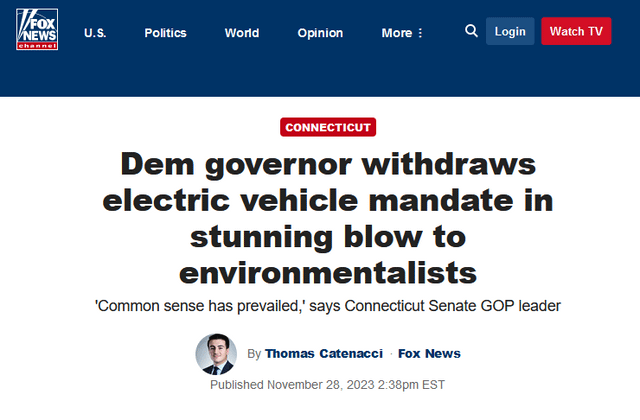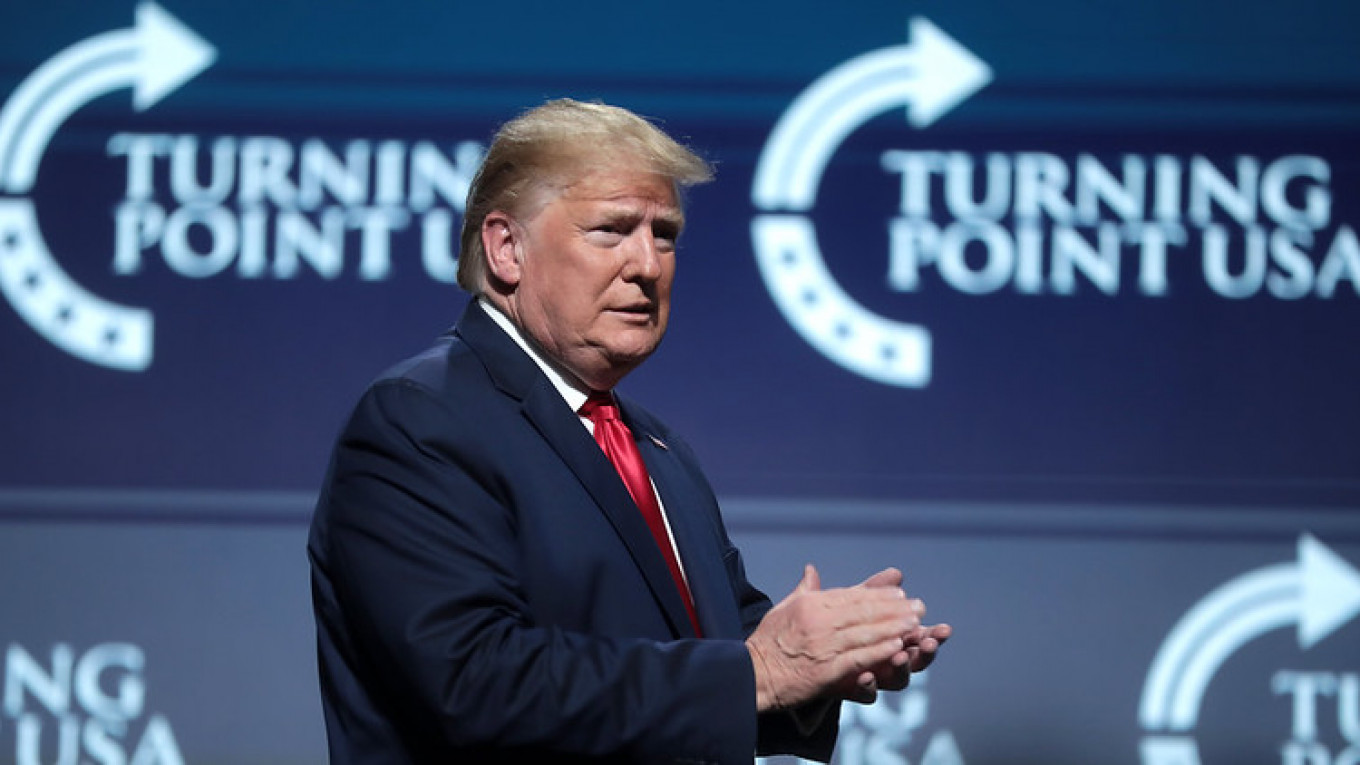Auto Dealers Intensify Opposition To Electric Vehicle Mandates

Table of Contents
Economic Concerns and the Impact on Dealerships
The economic implications of rapid EV adoption are a primary source of concern for auto dealers. The transition presents significant challenges to their existing business models, threatening profitability and even survival for some.
High Inventory Costs and Reduced Profit Margins
Dealers face considerable hurdles in managing EV inventory. The higher upfront cost of EVs compared to gasoline-powered vehicles leads to increased financial burdens.
- Increased storage needs: EVs often require specialized storage to protect their batteries and charging systems.
- Higher insurance costs: Insurance premiums for EVs can be higher due to the cost of repairs and replacement parts.
- Potential for unsold inventory: Slower sales of EVs, due to various factors, could lead to significant inventory losses.
- Need for specialized EV technicians: Servicing EVs requires specialized training and equipment, adding to dealership expenses.
Reduced profit margins on EVs further exacerbate these challenges. While the initial sale price might be higher, the lower maintenance requirements of EVs can lead to reduced service revenue compared to gasoline vehicles, impacting overall dealership profitability. This creates a financial squeeze, particularly for smaller dealerships with limited resources.
Investment in Infrastructure and Training
The transition to EVs necessitates substantial investments in infrastructure and training. Dealerships need to upgrade their facilities to accommodate EV charging stations, specialized service equipment, and trained technicians.
- Cost of installing EV chargers: The initial investment for installing fast-charging stations can be substantial, particularly for dealerships in locations lacking existing infrastructure.
- Specialized tools and equipment needed for repair: EV repair requires specialized tools and diagnostic equipment, representing a significant upfront cost.
- Employee training programs: Training existing staff or hiring new technicians with EV expertise adds to the financial burden.
- Lack of government support for infrastructure development: Insufficient government support for the development of charging infrastructure adds to the financial burden on dealerships.
Smaller dealerships, in particular, may struggle to shoulder these costs, potentially jeopardizing their viability in a rapidly changing market. This lack of financial support contributes significantly to the growing opposition to EV mandates.
Consumer Demand and Readiness for EV Adoption
While the environmental benefits of EVs are undeniable, consumer acceptance and readiness remain crucial factors. Several obstacles hinder widespread EV adoption, directly impacting dealerships' ability to sell and service these vehicles.
Range Anxiety and Charging Infrastructure Gaps
One of the most significant barriers to EV adoption is "range anxiety" – the fear of running out of battery power before reaching a charging station. This anxiety is amplified by the current gaps in charging infrastructure.
- Limited charging stations: The number of publicly available charging stations, especially fast-charging stations, is still insufficient to meet the growing demand.
- Long charging times: Even with fast chargers, charging an EV can take considerably longer than refueling a gasoline car.
- Uneven distribution of charging stations: Charging stations are often concentrated in urban areas, leaving rural communities underserved.
- Concerns about range in adverse weather conditions: Cold weather can significantly reduce EV range, exacerbating range anxiety.
Addressing these infrastructure deficiencies is crucial for boosting consumer confidence and accelerating EV adoption.
Affordability and Consumer Purchasing Power
The higher purchase price of EVs compared to comparable gasoline-powered vehicles remains a major obstacle for many potential buyers.
- High upfront costs of EVs: The initial investment required to purchase an EV is significantly higher than for gasoline vehicles.
- Limited availability of affordable EV models: While the market is expanding, affordable EV options remain limited.
- Impact on consumer spending: The high cost of EVs can strain household budgets, especially for lower-income families.
- Need for more accessible financing options: More accessible and affordable financing options are needed to make EVs more attractive to a wider range of consumers.
Government incentives, while helpful, often fail to fully bridge the affordability gap, leaving EVs out of reach for a considerable segment of the population.
The Role of Government Regulations and Support
Government regulations play a pivotal role in shaping the transition to EVs. While the intention is to promote sustainable transportation, the approach needs to be carefully calibrated to avoid unintended negative consequences.
The Need for a Balanced Approach to EV Transition
Dealers advocate for a more balanced and phased approach to EV mandates, acknowledging the environmental imperative but also recognizing the economic realities faced by the industry.
- Phased implementation of EV mandates: A gradual increase in EV sales quotas would allow time for infrastructure development and consumer education.
- Government funding for charging infrastructure development: Significant government investment is needed to expand the charging network and ensure equitable access.
- Tax credits and rebates for EV purchases: Substantial incentives are needed to make EVs more affordable for consumers.
- Support for dealership training and equipment upgrades: Government programs should assist dealerships in upgrading their facilities and training their employees.
Concerns about Government Overreach and Market Distortion
Dealers also express concerns that overly aggressive mandates could distort the market and hinder innovation.
- Potential for market imbalances: Rapidly imposed mandates could lead to shortages of certain EV models or create artificial price increases.
- Unintended consequences of aggressive mandates: Overly ambitious targets could lead to unforeseen negative economic consequences for dealerships and the broader automotive industry.
- The need for flexibility in regulation: Regulations should be flexible enough to adapt to evolving market conditions and consumer preferences.
- Promotion of consumer choice: Mandates should not stifle consumer choice but rather encourage a diversity of vehicle options.
Conclusion
The intensifying opposition to electric vehicle mandates from auto dealers underscores the complexities involved in a swift transition to electric vehicles. Concerns about economic viability, consumer readiness, and the role of government regulation are all valid considerations that necessitate careful attention for a successful and equitable shift towards sustainable transportation. A collaborative approach involving auto dealers, government agencies, and the broader automotive industry is essential to navigate this transition effectively. Finding a balance between promoting EV adoption and safeguarding the economic health of dealerships is crucial for the future of the automotive industry and the successful implementation of electric vehicle mandates. Let's work together to find solutions that address the concerns surrounding electric vehicle mandates and pave the way for a sustainable future for the automotive sector.

Featured Posts
-
 False Reports Warren Buffett Denies Backing Trumps Tariffs
May 04, 2025
False Reports Warren Buffett Denies Backing Trumps Tariffs
May 04, 2025 -
 2025 Playoffs Capitals And Vanda Pharmaceuticals Announce Key Initiatives
May 04, 2025
2025 Playoffs Capitals And Vanda Pharmaceuticals Announce Key Initiatives
May 04, 2025 -
 Prevenir L Imbecile De Faire Quelque Chose De Stupide Aiguiser La Guillotine
May 04, 2025
Prevenir L Imbecile De Faire Quelque Chose De Stupide Aiguiser La Guillotine
May 04, 2025 -
 Nhl Playoffs 2024 Who Will Win The Stanley Cup
May 04, 2025
Nhl Playoffs 2024 Who Will Win The Stanley Cup
May 04, 2025 -
 Canelo Alvarez And Terence Crawford Comparing Post Mayweather Careers
May 04, 2025
Canelo Alvarez And Terence Crawford Comparing Post Mayweather Careers
May 04, 2025
